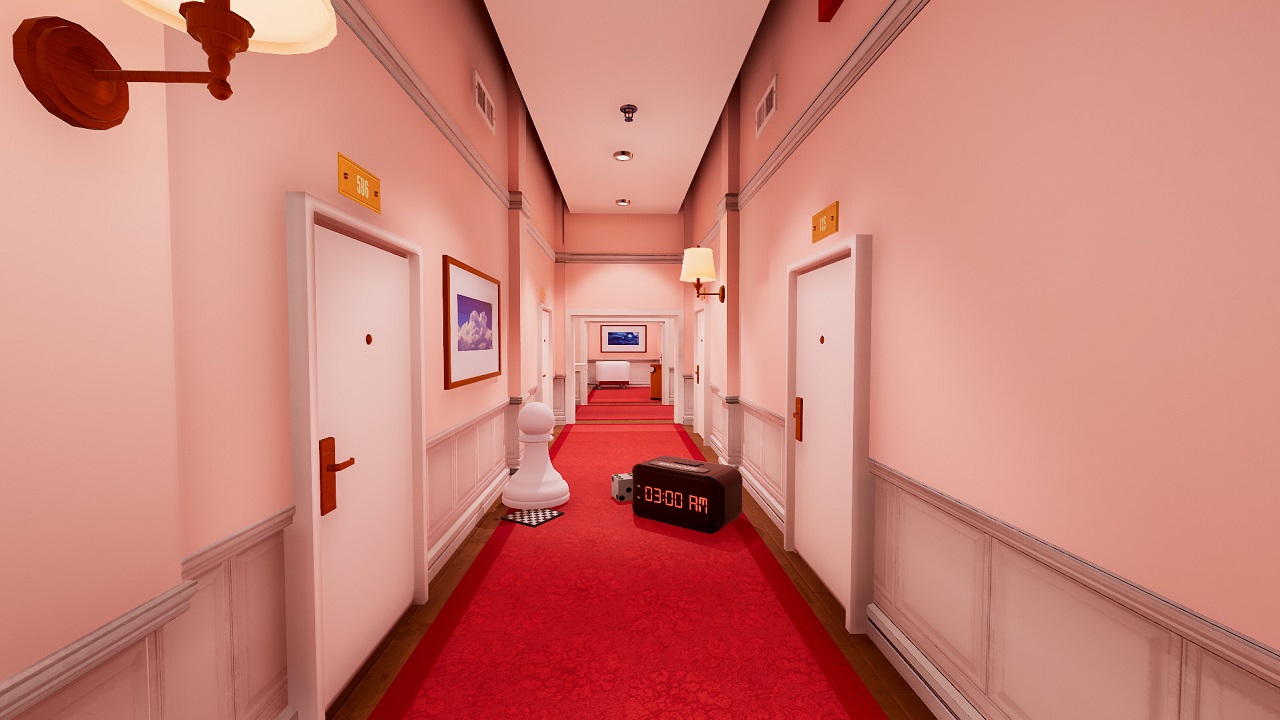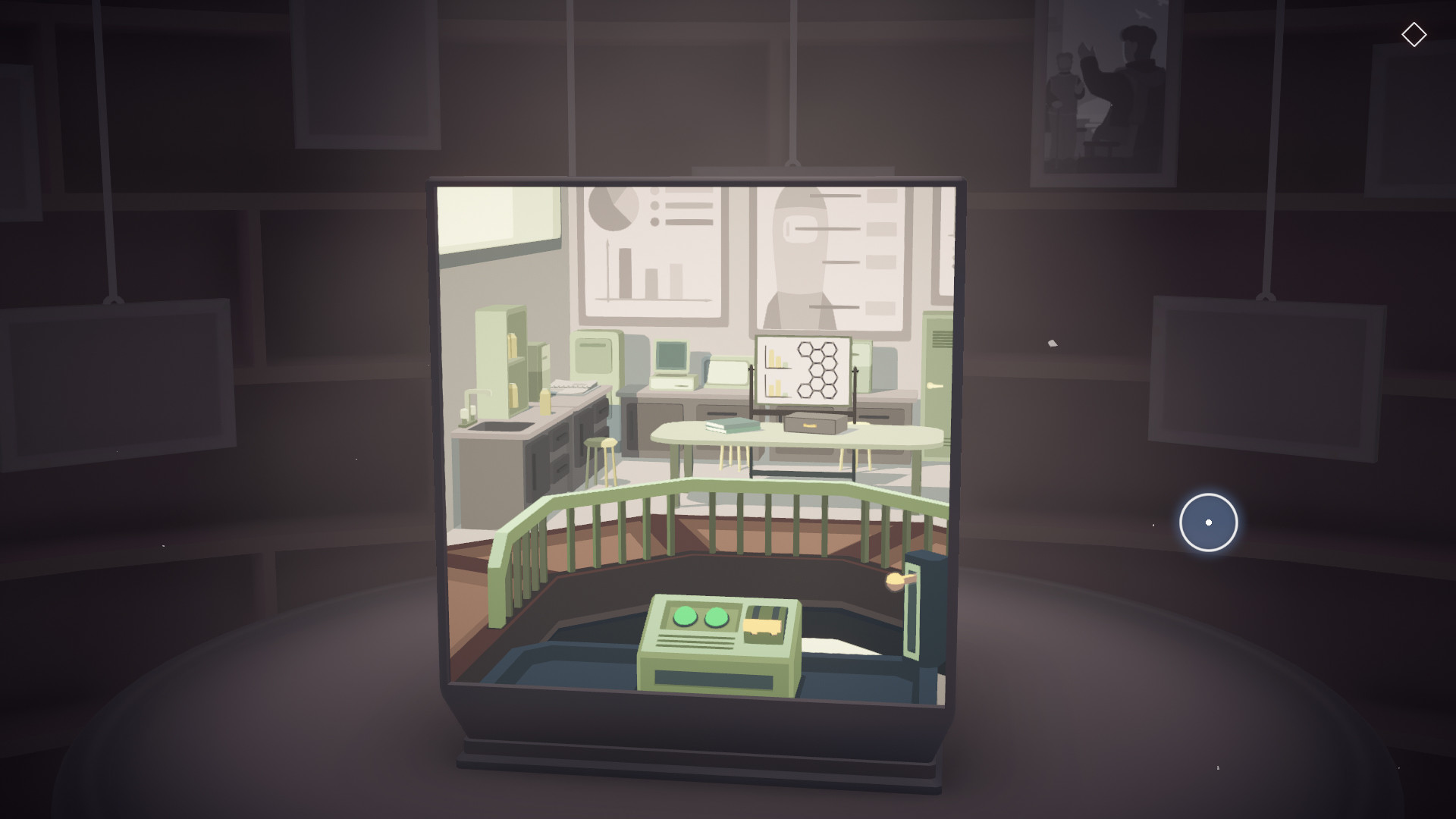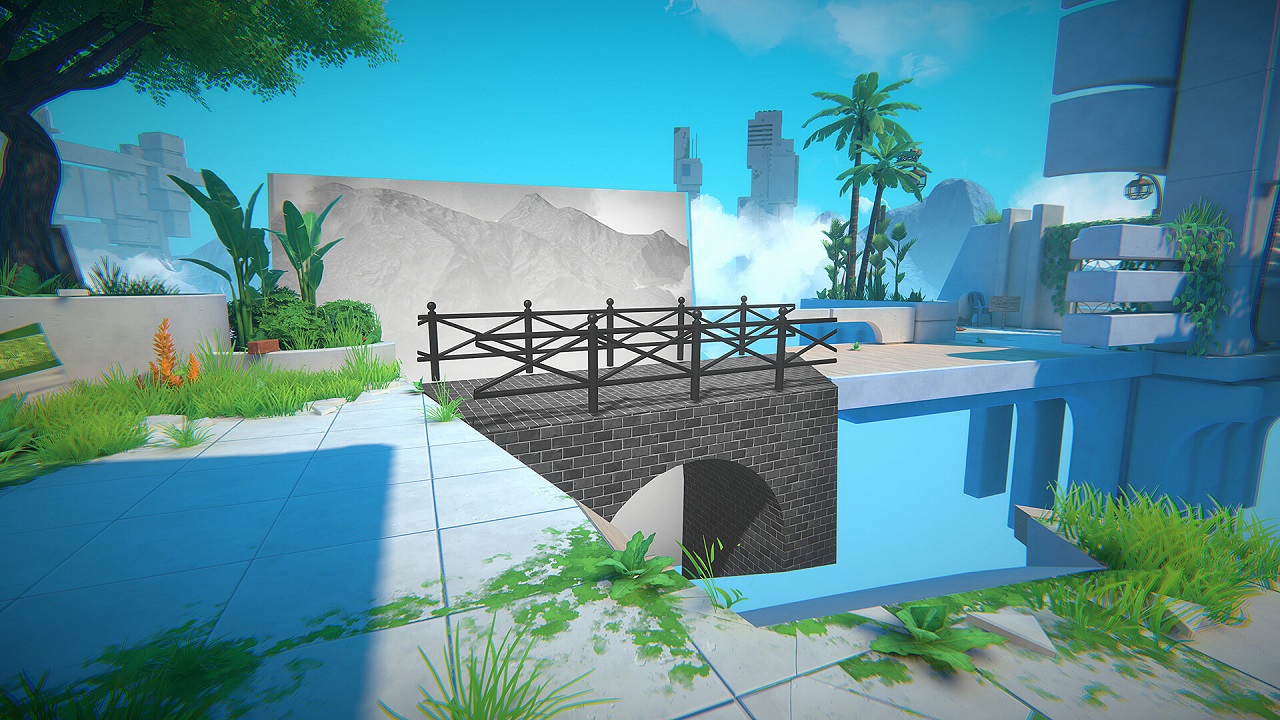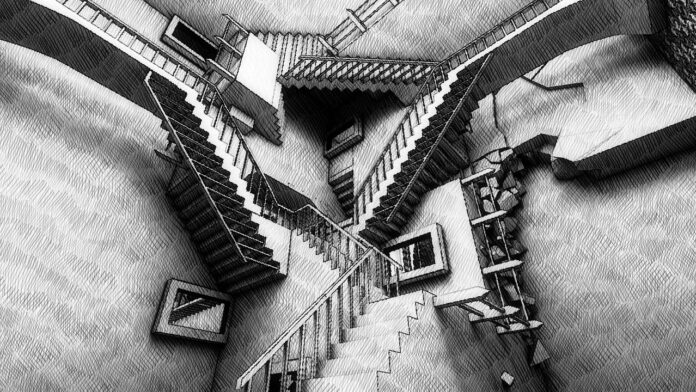Today we’re bending reality with some non-euclidean games and the proper explanations to keep us sane.
What are non-euclidean games?
Game enthusiasts frequently use the expression non-Euclidean to describe any type of game where the geometry of space differs from that of the real world. This is not what “non-Euclidean” typically implies for mathematicians, for whom it has a more specific definition, which is not quite anything that is not a perfectly regular space, despite the fact that such games typically tend to be great and highly entertaining. Keengamer says these games are the trend of the future.

Non-euclidean geometry
One of the most unexpected events in the history of mathematics was the discovery of non-Euclidean geometry. For more than 2000 years, many great minds have denied its existence. Non-Euclidean geometry has been the subject of so many widely read mathematical explanations that it has deservedly gained a reputation as being highly strange, weird, and difficult to comprehend. Okay, but you probably asking yourself how can you tell you are playing a non-euclidean game. Well, Zeno Rogue helps us understand this in his Medium article found here.
- Parallel lines
Parallel lines that are always at the same distance from one another are a feature of Euclidean geometry. They would diverge in hyperbolic geometry and converge in spherical geometry. - Triangle angles
Together, they add up to 180 degrees in Euclidean geometry. They add up to more in spherical geometry (for example, take the North Pole, and two vertices on the equator as the vertices). They add up to less in hyperbolic geometry. - Rectangles
Rectangles are a simple indicator of whether a game employs really non-Euclidean geometry. There are no rectangles in non-Euclidean geometry and instead, everything that resembles a rectangle has angles that are less than 90 degrees or curved edges. So, the game is most likely not non-Euclidean if you observe rectangles. - Circles
A circle with radius r has a perimeter of 2 times pi multiplied by the radius in Euclidean geometry. It is 2*pi*sin(r) in spherical geometry, while it is 2*pi*sinh(r) in hyperbolic geometry (which grows exponentially). A ball with a radius of 100m will have more volume than our universe in a three-dimensional hyperbolic environment with an absolute unit of 1m. - Parallax
The way that parallax functions vary in 3D games and simulations that are really non-Euclidean. Things that are far away from you (the sun or far away buildings) are perceived in about the same location as you travel in Euclidean space. Non-Euclidean geometries cause this to change: everything moves in hyperbolic space.
Non-Euclidean games list
Now that we know what makes a game non-euclidean, let’s see some of the greatest titles. As a note, not all games are 100% non-euclidian but they were worth mentioning.
Hyperbolica

The main character in this 2022 first-person, surreal adventure game falls asleep in geometry class. The protagonist unintentionally enters a hidden realm called Hyperbolica where parallel lines split and space expands exponentially since this geometry lesson is taking place within a virtual reality system called the Brainlink system. The player may now explore the area, work out riddles, and try different things.
Antichamber

Antichamber, a 2013 puzzle platformer built with Unreal Engine, may have been the first game to use impossible environments and items as its main hook. The player awakens in an antechamber as a nameless protagonist and learns that the exit is hidden behind a glass wall. The protagonist must traverse the expansive structure and work out riddles that deliberately challenge perceptions of what is physically possible in order to reach the exit. For instance, depending on which side of the player stares at the cube, he may occasionally turn around and find himself in an entirely different area.
Imagine when some non-euclidean games will be built with Unreal Engine 5.2 capabilities.
Superliminal

Superliminal is a first-person, surreal game where the player is led by an ever-present A.I. through a series of riddles. It was inspired by games like Portal and The Stanley Parable. In order to test the new SomnaSculpt technology, the player is forced to go sleep at the Pierce Institute, where they become imprisoned in their dreams.
Moncage

Moncage, a puzzle adventure game that was released at the end of 2021, features a 3D world on each side of a cube that is distinct from the surroundings on the other sides. The player will need to manage a special scene on one side of the cube so that it may line up and have an impact on a separate picture on another side of the cube, which is pretty impressive.
Portal 1 & 2

Valve’s Portal is a single-player game. One of the most cutting-edge games, Portal provides players with hours of distinctive gameplay and is set in the enigmatic Aperture Science Laboratory. Now with the Portal RTX update the game is even better.
Fragments of Euclid

One of the many fantastic monochrome games is the 2017 free first-person puzzle adventure game Fragments of Euclid, which can be found on Itch.io. The player must navigate a world filled with impossible geometry and solve puzzles while using a sketched design that resembles several of Escher’s pieces.
The Bridge

The Bridge is a mysteriously beautiful puzzle game with hand-drawn, grayscale graphics. An anonymous guy is taken to his residence, which serves as a centre for the game’s several stages after an apple falls on his head and wakes him up. The player’s task is to direct the man through each level so that he may locate a key and get to the exit. The player will need to rotate the planet in order to alter gravity.
Viewfinder

With your instant camera, you can question perception, reinterpret reality, and transform the world around you. Viewfinder is an upcoming Non-Euclidean single-player game that will provide you with hours of unique and exciting experiences as they unravel the secrets left behind.
The game doesn’t have a release date yet but you can try a Demo on its Steam store page.
Other non-Euclidean games worth mentioning:
- HyperRogue
- Naya’s Quest
- Holonomy
- Topologies of Zelda
- Tetrisphere
- Manifold Garden
- Spaceflux
We hope you liked reading our post and will try at least one of the games we recommended because we promise you won’t regret it. Now, regarding non-euclidean games, what’s your opinion on them? Is the stuff too confusing, would you like to see other games on our list? Feel free to contact us and let us know!



